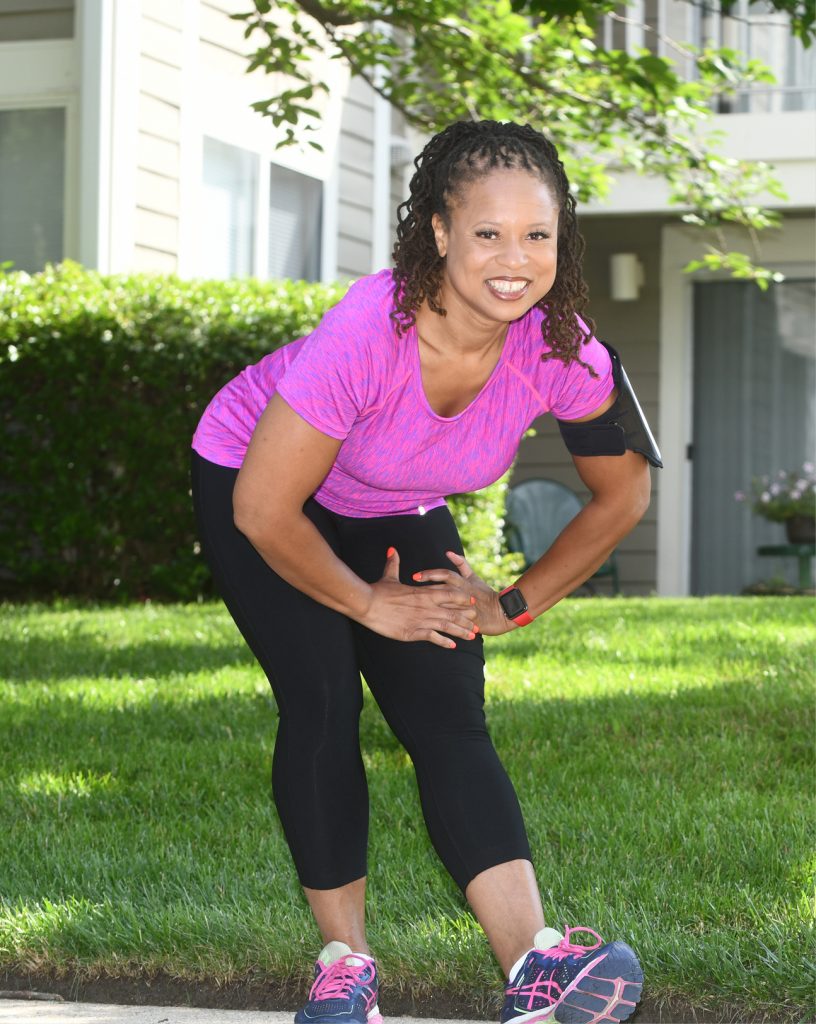Mary Windham is a woman on the move. As president and CEO of Occasions, Inc., an event and travel management company, she is constantly on her feet. Outside of the office, the Columbia, Maryland, resident is an avid runner, cyclist, kayaker, and hiker. So when Mary began to experience persistent discomfort in her left knee, she knew she didn’t have time to be held back.
She made an appointment to see Ellen L. Smith, MD, an Orthopaedic and Emergency Medicine physician at MedStar Montgomery Medical Center who specializes in Sports Medicine. The two had met years earlier when Mary attended a wilderness medicine course led by Dr. Smith. In addition to learning important safety skills for hiking, rock climbing, and camping, Mary had connected with Dr. Smith over a shared love of fitness.
“My knee pain was keeping me from doing the things that I love, particularly running,” Mary recalls. “Dr. Smith was an easy choice for my care. I was certain that she and the team at MedStar Montgomery could get me moving comfortably again.” Dr. Smith observed Mary’s running gait and identified how problems with her form were triggering knee pain. Over the course of several sessions, she helped Mary adjust her stride and eliminate the nagging discomfort. The process was challenging but rewarding, reminding Mary that fitness is truly worth the work.
“Dr. Smith is not just a doctor, she is an educator,” Mary says. “She helped me understand not just what I needed to do to adjust my gait, but why I needed to do it. Whether you’re an experienced athlete or haven’t been on a bicycle since you were a kid, Dr. Smith can get you feeling confident and excited about fitness. It’s important for all of us.”
Two recent research studies underscore how true this is. According to the American Heart Association’s professional journal, Circulation, 20-minute cardio sessions of mild-to-moderate intensity three times a week can help prevent heart failure in previously sedentary middle-aged individuals. Likewise, a study out of Sweden suggests that even mild aerobic exercise at midlife can reduce the risks of developing dementia later on. If taken to heart, the findings could help millions of people live longer and better lives. According to the Alzheimer’s Association, approximately 5.7 million Americans today suffer from the debilitating disease, one of the leading causes of dementia. Heart failure affects an equal number.
“The message is loud and clear,” says Dr. Smith. “Everyone, at every age, should be doing some sort of exercise.”
Dr. Smith and her Sports Medicine colleagues are devoted to helping patients find a fitness program that fits their needs.
“So many things can derail a person’s best intentions: pain, weakness, stiffness, or just not finding something you can stick with,” Dr. Smith says. “Our job is to figure out how to resolve or, in some cases, work around those hurdles so that people will comply with ‘doctor’s orders’ to incorporate exercise into their regular routines.”
Focus on What Works
Patients like Mary, who are recovering from injury or illness, often benefit from the state-of-the-art techniques and technology MedStar Montgomery’s physicians and physical therapists use to help rebuild strength, stamina, and stability. These treatments can even be helpful for those who are not recovering from any specific ailment, but simply find that their bodies don’t move as easily or freely as they should. For some, part of the puzzle may be custom orthotics to reduce pain and strain in the feet and ankles, making walking or running easier.
Trampolines, anti-gravity treadmills, and other low-impact equipment and techniques let patients with asthma and heart problems safely achieve desired fitness levels. With reluctant athletes, Dr. Smith’s initial challenge is to determine what type of sport or exercise program might engage participants based upon their current leisure activities and interests. That could range from hiring a personal trainer for motivation and encouragement to getting a puppy that must be walked several times a day.
It’s all part of MedStar Montgomery’s effort to advance the health and well-being of the entire community. “As studies show, we can’t wait any longer to acknowledge the importance of exercise to health and longevity,” Dr. Smith concludes.
“Going forward, everyone needs to think of him- or herself as an athlete or ‘athlete-in-training.’ We’re here to help you succeed.”









